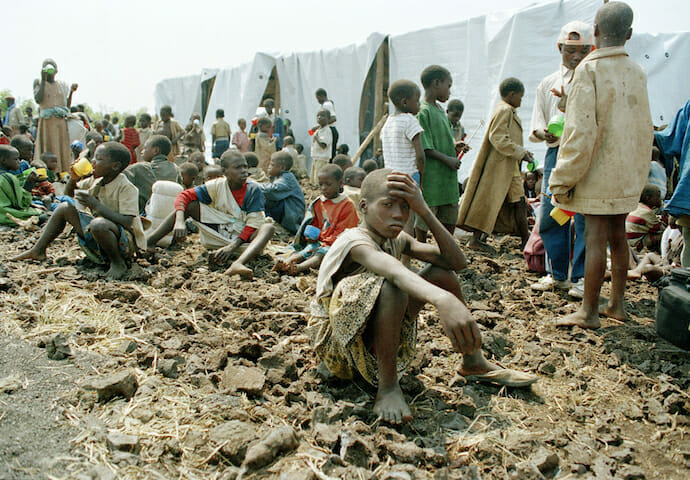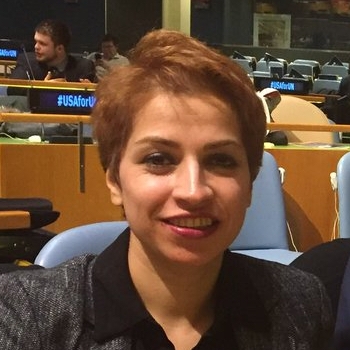
Reflecting on 70 Years of the Genocide Convention: Is It Effective?
On December 9, 2018, the United Nations commemorated the 70th anniversary of the Convention on the Prevention and Punishment of the Crime of Genocide (Genocide Convention) which came into effect in 1948. On the 70th anniversary of the Convention, UN Secretary General António Guterres lamented, “My generation believed that after the Holocaust, we would never see genocide again. We were wrong.” He went on to say that only 149 countries have signed the GC and urged the remaining 45 to sign the Convention.
Since its establishment in 1948, the Convention has done little and consequently has failed to deliver on its promises and commitments to prevent genocide considering the genocides in East Timor, Bosnia, Somalia, Rwanda, and Kosovo. Today, the conflict and refugee crisis being executed by Myanmar’s government against the Rohingya, a Muslim minority in the country, is beginning to be labeled as genocide by some journalists and academics. Does it make sense to have more countries sign the Genocide Convention when the UN is not even stepping up to call the current-day Rohingya crisis as a genocide? Despite the fact that the 440-page report provided by the UN Special Rapporteur on Myanmar stated it was “in support of its call for the country’s generals to face an international tribunal on charges of genocide,” states and international organizations have failed to act.
The term genocide was first created by Raphael Lemkin, a Polish lawyer in 1944, who underscored the Nazi policies of extermination of Jewish people during the Holocaust. The crime of genocide in international law is defined and codified in international law as, “Acts committed with intent to destroy, in whole or in part, a national, ethical, or religious group” by the Genocide Convention. Yet seventy years after its passage, populations are still subject to ethnic cleansing along with other international crimes such as torture, rape, and hate-driven vandalism. Unfortunately, the Genocide Convention along with other legal mechanisms that emerged both before and after the Convention aiming to stop human rights violations are not effectively implemented. Thus, how will signing the Genocide Convention make the member states be held accountable given the fact that some of its signatories are guilty of genocide?
The Genocide Convention became the UN’s first human rights treaty, enacted the day before the Universal Declaration of Human rights. In the late 1940s, it seemed that the UN was pursuing a more aggressive accountability vein through the Nuremberg and Tokyo trials, and later, in the 1990s, the ad hoc criminal tribunals for the former Yugoslavia (ICTY) and Rwanda (ICTR), the creation of International Criminal Court, and pursuing the principle of the Responsibility to Protect (R2P). However, the ideology behind the phrase “never again” has not taken root nor been enforced as deeply as the heinous crimes it was meant to avoid through these additional legal mechanisms.

The international community has failed to address the early signs of genocide and take timely, stringent measures which allow genocide to still occur. The anniversary provides an opportunity to look at the role played by superpowers that are signatories to the Convention, especially the global superpower, the United States. Years of mass atrocities throughout the world serve as an indication of U.S. silence, mere denunciation, and thus complicity with genocidal regimes.
One of the most famous cases of the United States remaining silent occurred in 1971, is East Timor. President Ford and his Secretary of State, Henry Kissinger, were made aware of the Indonesian dictator’s plan to occupy the Portuguese colony of East Timor. Since the U.S. didn’t have any interests in East Timor, it turned a blind eye to the occurring genocide there. Additionally, inaction in Rwanda confirmed that U.S. interests must be at stake for the administration to break its silence. The U.S. failed as a signatory to the Genocide Convention in relation to the Darfur genocide in 2003 to 2008 when the United States resorted to denunciation and rhetoric toward the mass killing in Darfur rather than taking definite action. Myanmar’s military has committed ethnic cleansing and genocide against the Rohingya who have been denied the most basic rights since 2012. Establishing a friendly relationship with the Myanmar government acknowledges latent complicity in genocide and instigates the crisis.
So, what can be done? The United Nations needs to begin to hold powerful nations that are signatories of the Genocide Convention more accountable to prevent genocide, despite any lack of state interest in the country where the genocide may be happening. The office of UN OSAGP recommends raising awareness, alerting, and advocating, so as to improve the UN’s role to prevent genocide. But it is not enough. Engaging people at the local level is of paramount importance. The UN needs to urge countries to especially focus on effectively educating the youth and training programs for practitioners, school-age children, and adults through cultural remembrance, funding and disseminating educational programs and materials on genocide prevention, and holding workshops or courses for non-profit and advocacy groups.
One country which has begun to take tangible action against past atrocities is Germany. To address its history, Germany is now bringing the guilty of the genocide to justice. Over years following World War II, surviving Holocaust perpetrators are being brought to trial, despite the long-term lack of prosecution. This underscores “the importance of recording the testimonies of alleged perpetrators.”
The time has come to begin convicting the perpetrators of the past genocides as a means of deterrence for potential future genocides, rather than constantly pursuing programs of retroactive justice. The international community should be more proactive than reactive, responding to the signs of genocide, while addressing the socioeconomic grievances of its people to prevent resentment between ethnic and religious groups who pose a perceived threat to one another due to their varying access to resources. Ultimately, genocide can be stopped only with the help and active participation of all states. By coordinating with one another, states can prevent another genocide and perpetuate the cycle of doing too little too late.
